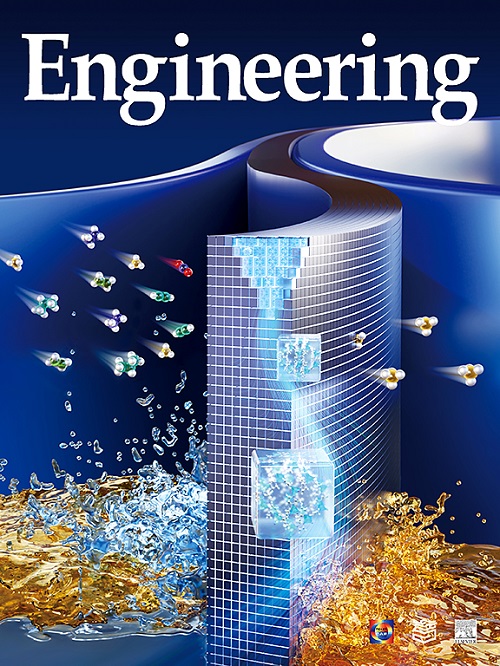Microbial Electrochemical Wastewater Refining
IF 10.1
1区 工程技术
Q1 ENGINEERING, MULTIDISCIPLINARY
引用次数: 0
Abstract
Wastewater treatment significantly contributes to greenhouse gas emissions, which are further exacerbated by the environmental impact of external chemical additions. In response, microbial electrochemical wastewater refining has gained prominence at the interdisciplinary frontier of wastewater resource recovery and green bio-manufacturing. Significant progress has been made in utilizing active electrodes to stimulate CO2 fixation rates, applying “binary electron donors” to produce high-value-added chemicals, and developing novel processes and equipment. This review explores various aspects of microbial electrochemical wastewater refining, including microbial electrochemical monitoring of water quality, chemical synthesis from diverse carbon sources, and the deployment of pilot-scale systems for generating electricity, hydrogen, and methane, as well as for in-situ remediation. Additionally, it discusses the challenges and future directions, highlighting the importance of understanding mechanisms, advancing electrocatalyst and microbial engineering, and innovating hybrid processes. In conclusion, the widespread adoption of microbial electrochemical wastewater refining is emphasized for resource recovery and sustainable chemical production, ultimately reducing environmental impact.
微生物电化学处理废水
废水处理大大增加了温室气体的排放,而外部化学添加剂对环境的影响又进一步加剧了温室气体的排放。因此,废水微生物电化学精制在废水资源化和绿色生物制造的交叉学科前沿得到了突出的发展。在利用活性电极提高二氧化碳固定率、利用“二元电子给体”生产高附加值化学品、开发新工艺和新设备等方面取得重大进展。本文综述了微生物电化学废水精制的各个方面,包括水质的微生物电化学监测,不同碳源的化学合成,以及发电、氢气和甲烷的中试系统的部署,以及原位修复。此外,它还讨论了挑战和未来的方向,强调了理解机制,推进电催化剂和微生物工程以及创新混合工艺的重要性。综上所述,强调微生物电化学废水精制的广泛采用,以实现资源回收和可持续化工生产,最终减少对环境的影响。
本文章由计算机程序翻译,如有差异,请以英文原文为准。
求助全文
约1分钟内获得全文
求助全文
来源期刊

Engineering
Environmental Science-Environmental Engineering
自引率
1.60%
发文量
335
审稿时长
35 days
期刊介绍:
Engineering, an international open-access journal initiated by the Chinese Academy of Engineering (CAE) in 2015, serves as a distinguished platform for disseminating cutting-edge advancements in engineering R&D, sharing major research outputs, and highlighting key achievements worldwide. The journal's objectives encompass reporting progress in engineering science, fostering discussions on hot topics, addressing areas of interest, challenges, and prospects in engineering development, while considering human and environmental well-being and ethics in engineering. It aims to inspire breakthroughs and innovations with profound economic and social significance, propelling them to advanced international standards and transforming them into a new productive force. Ultimately, this endeavor seeks to bring about positive changes globally, benefit humanity, and shape a new future.
 求助内容:
求助内容: 应助结果提醒方式:
应助结果提醒方式:


